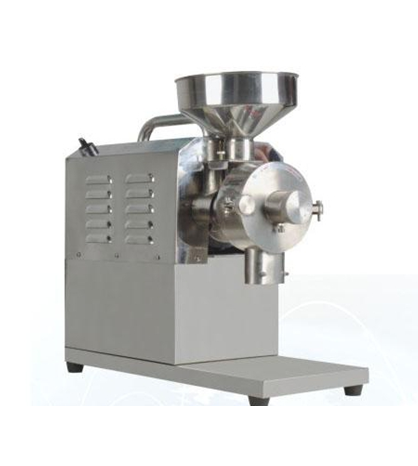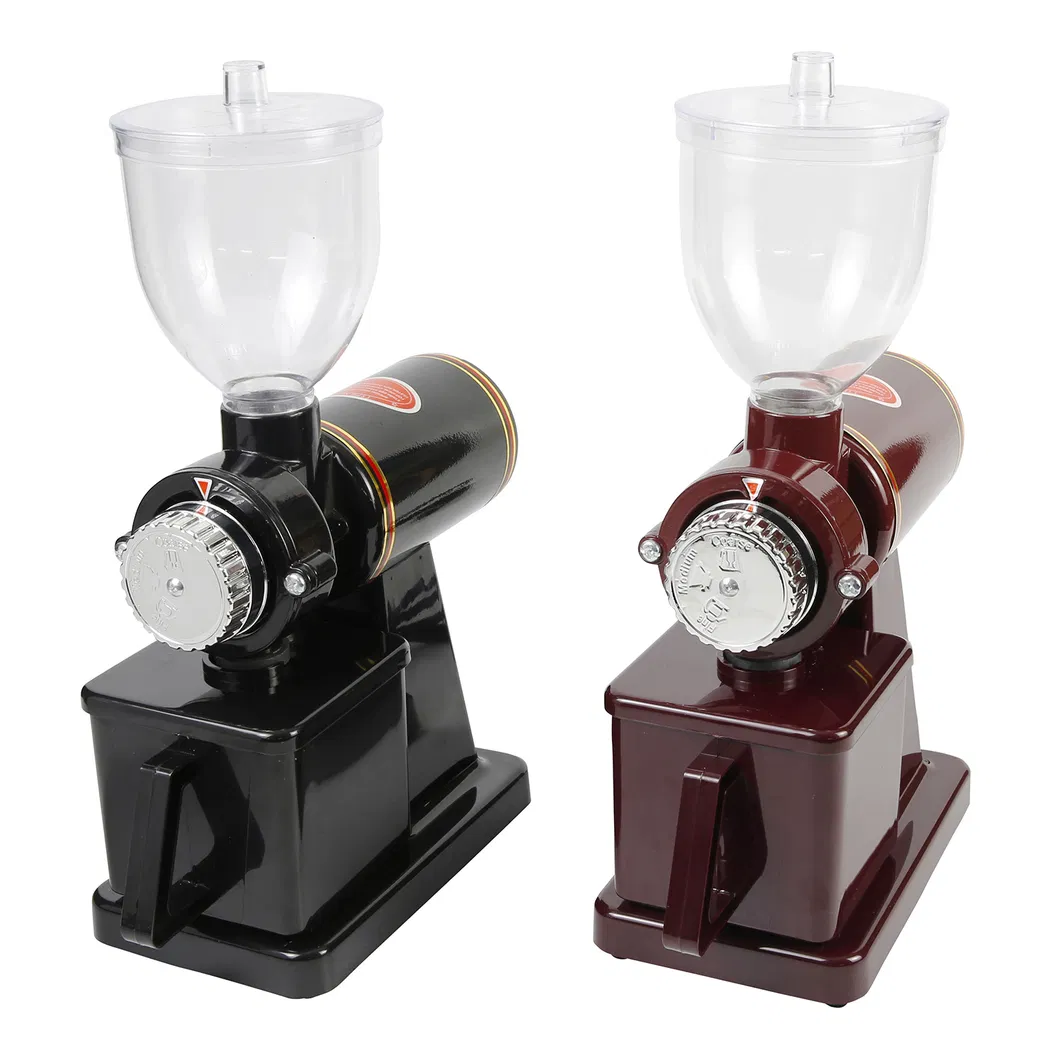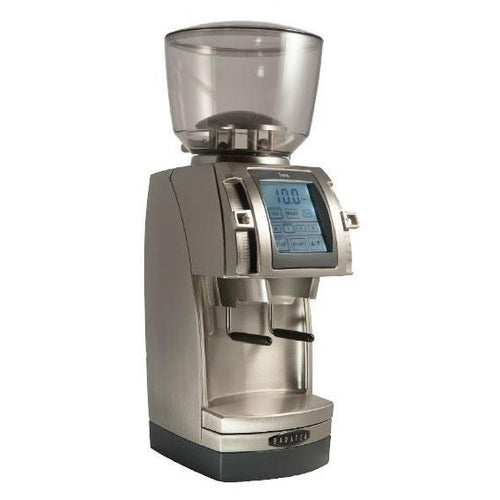Leading Attributes to Seek in an Industrial Coffee Mill
When assessing a commercial coffee mill, it is crucial to recognize vital attributes that influence both efficiency and longevity. Consistency in grind size is essential for optimum removal, while flexible grinding speed enables for a balance between efficiency and high quality.
Grind Size Uniformity
While numerous elements can affect the top quality of made coffee, grind dimension uniformity continues to be critical in achieving optimum removal. The harmony of coffee premises straight influences the developing process, as unequal bit sizes can result in over-extraction or under-extraction. This incongruity leads to imbalanced tastes, where particular notes may be overpowering while others are silenced.
Industrial coffee mills are designed to provide a high degree of accuracy, commonly using burr grinding mechanisms to ensure a consistent grind size. Unlike blade mills, which can develop a mix of fine and coarse particles, burr mills squash the beans between two surfaces, allowing for better control over work size. This uniformity is vital throughout different brewing techniques, whether coffee, French press, or pour-over, as each strategy requires specific work dimensions for ideal taste removal.
Furthermore, uniformity in work dimension adds to the general efficiency of the developing process. A consistent work permits even water flow, minimizing the danger of funneling and enhancing extraction effectiveness. In summary, purchasing a commercial coffee grinder with a concentrate on work size consistency is crucial for accomplishing top notch coffee with desirable taste profiles.
Grinding Speed
Grinding speed plays a critical function in the total efficiency of industrial coffee grinders, straight influencing both the quality of the grind and the effectiveness of the operation. Industrial Coffee Grinder. Higher grinding rates can significantly improve the throughput, making it possible to refine bigger quantities of coffee beans in a shorter time frame. This is particularly important for companies that count on high-volume manufacturing, such as coffee roasteries and cafes
However, while speed is necessary, it is equally vital to balance it with the top quality of the grind. Exceedingly high grinding speeds can produce warm, which might negatively impact the taste account of the coffee by causing the beans to lose essential oils and scents. For that reason, a mill that uses adjustable speed setups can provide optimal adaptability, enabling drivers to tailor the grinding process according to details requirements.
Additionally, the grinding rate should correspond to make sure harmony in the work size, further adding to the general preference and brewing top quality of the coffee. In recap, reviewing grinding rate is important for choosing an industrial coffee grinder that fulfills both efficiency and quality needs.
Build Top Quality and Durability
The efficiency of a commercial coffee grinder is not only established by its grinding speed; build high quality and resilience are similarly crucial factors that influence lasting performance and integrity. A well-constructed grinder will stand up to the rigors of everyday use, making it a sound investment for any type of business procedure.

Toughness also encompasses the mill's motor and interior devices. Industrial coffee mills should be outfitted with sturdy electric motors qualified of sustaining extended operation without overheating. Furthermore, durable burrs are essential, as they directly affect the top quality of the grind and add to the overall longevity of the machine.

Convenience of Use and Upkeep
Consistently focusing on ease of use and upkeep can considerably boost the functional performance of an industrial coffee grinder. Straightforward functions such as intuitive controls and clear labeling are vital for lessening downtime and guaranteeing that operators can swiftly adjust to the tools. An ergonomic style, consisting of height-adjustable hoppers and accessible grinding chambers, permits comfy operation and facilitates the loading and unloading of coffee beans.
Additionally, simplicity of upkeep is important for prolonging the life-span of the grinder. Tools with removable parts and parts designed for fast cleaning can streamline upkeep tasks, lowering the time invested on regular maintenance - Industrial Coffee Grinder. Look for mills that incorporate self-cleaning systems or require marginal disassembly, as these features can save valuable labor hours
Additionally, clear maintenance routines and documentation are crucial. Mills that come with comprehensive user guidebooks detailing maintenance treatments can assist drivers stick to best methods, making sure regular efficiency and quality. By purchasing a commercial coffee grinder that highlights ease of use and maintenance, businesses can enhance efficiency, lower functional costs, and maintain the high criteria anticipated in coffee manufacturing.


Noise Degree Decrease
When selecting an industrial coffee mill, noise level decrease is an important element that can greatly impact the workplace. High sound levels can lead to worker fatigue, reduced concentration, and potential hearing More Help damages in time, making it essential to select a grinder created with sound-dampening features.
Look for mills that incorporate advanced noise-reduction technologies, such as sound-insulated housings and vibration-dampening mounts. These attributes aid to lessen functional noises, producing a quieter Recommended Site environment favorable to efficiency. Industrial Coffee Grinder. In addition, selecting grinders geared up with low-noise motors can even more enhance sound decrease, making certain a more positive working atmosphere
Consider the grinder's total style. Models with integrated sound-absorbing materials can dramatically decrease sound emissions during grinding cycles. The placement of the mill within the office need to be calculated. Placing it on a steady, heavy surface can assist to decrease vibrations that add to sound.
Eventually, investing in a coffee mill that focuses on noise decrease not just boosts the convenience of staff members however likewise aligns with a dedication to preserving a risk-free and efficient workplace. This attention to detail can bring about boosted staff member satisfaction and retention.
Final Thought
In summary, choosing a commercial coffee mill requires cautious consideration of numerous key features. Grind size consistency is vital for ideal extraction, while flexible grinding rate assists in a balance between throughput and high quality. The option of products straight impacts construct quality and sturdiness, making sure longevity in a requiring atmosphere. Simplicity of usage and upkeep, along with noise reduction modern technologies, improve functional performance and convenience. Focusing on these functions will certainly result in an view publisher site extra effective grinding option.
Industrial coffee grinders are designed to give a high level of accuracy, typically employing burr grinding mechanisms to make certain a consistent work dimension. Unlike blade mills, which can create a mix of fine and coarse fragments, burr mills crush the beans in between 2 surface areas, allowing for much better control over work dimension. In recap, investing in an industrial coffee grinder with an emphasis on grind size uniformity is crucial for attaining top notch coffee with desirable taste accounts.
Grinding speed plays an important function in the general efficiency of industrial coffee mills, straight affecting both the high quality of the grind and the performance of the procedure. A mill that provides adjustable rate settings can provide optimum versatility, enabling drivers to customize the grinding procedure according to particular needs.
Comments on “Industrial Coffee Grinder vs. Home Grinder: Main Differences Detailed”